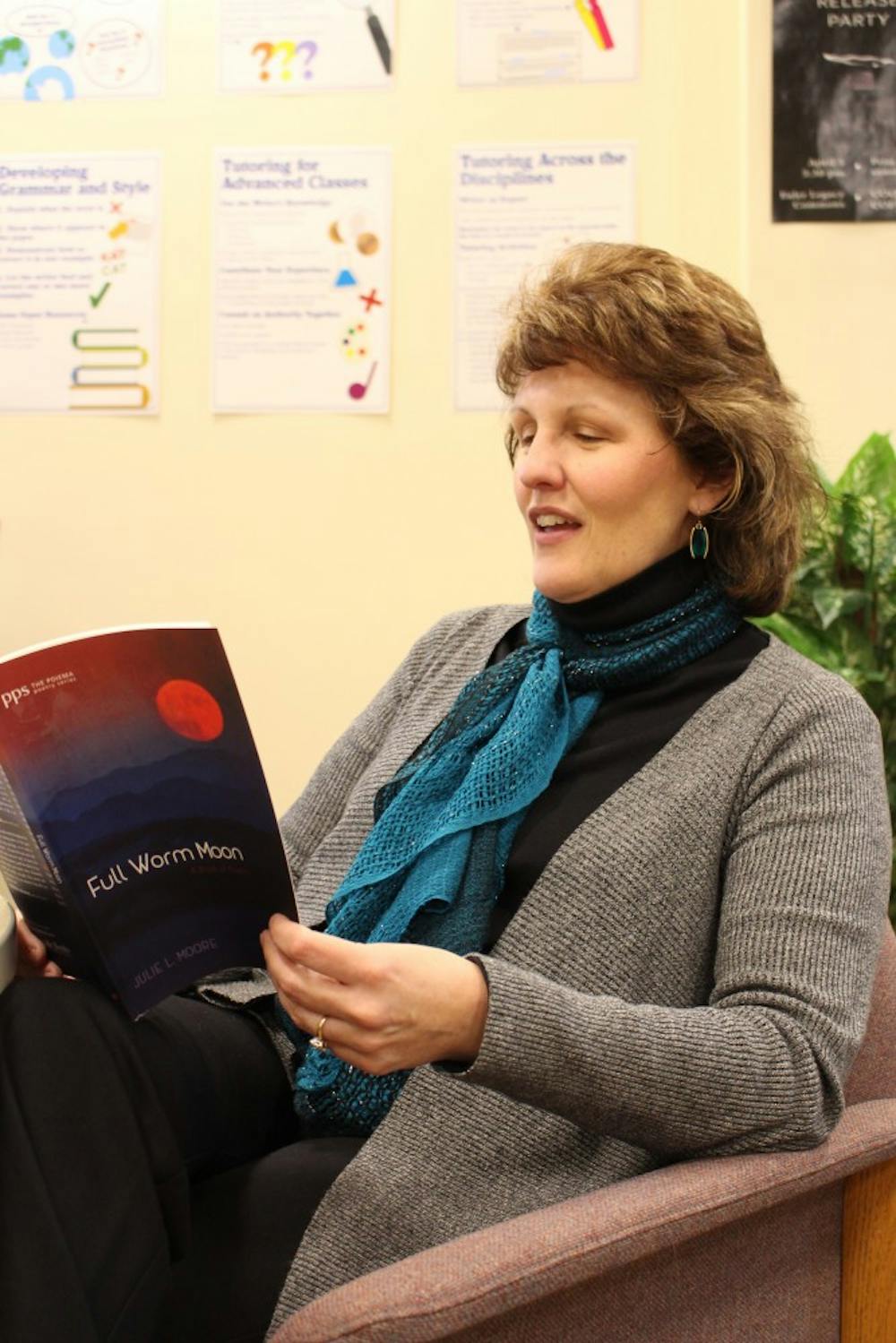By Kassidy Hall | Echo
Full worm moon.
The term refers to the first full moon in the month of March and is additionally the name of a book of poetry recently published by Julie Moore, director of the Writing Center and associate professor of English.
The book, which was released March 9, 2018, is Moore's fourth published book of poetry. Inside the pages of "Full Worm Moon," Moore explores themes of loss, suffering, faith and joy. Although her writing style has matured over time, Moore recalls being interested in writing from a young age.
"I was one of those kids who was writing stories in junior high," Moore said. "I always thought, 'I'm going to be a writer' because I loved writing stories and poems, but I didn't really have a good sense of how much work goes into it."
"Here I am, and this is my fourth book, and nobody is more amazed than I am," Moore said. "I'm playing with a lot of themes in 'Full Worm Moon.' The first section is about the disintegration of a marriage, but it doesn't end there. There are poems of joy. There's this sweetness among grief and there is joy among lamentation that in many ways is inexplicable, but because I am a Christian, I believe that is a God thing."
"Full Worm Moon" is a reference to March's full moon; however, Moore includes 11 other poems about each month's moon. All 12 poems unify the book, and the reoccurring moon is a motif for the cycles and seasons of life that someone experiences in the span of one year.
Moore's son, Alex, an English major and Taylor alumnus ('16), was one editor of her book. Scripture and the faith, as well as family, nature and creativity, are other themes prominent in "Full Worm Moon."
"Faith is everything I am," Moore said. "I was blessed to be raised in a Christian home, and so I came to faith at a very young age, which basically just means I went through tons of doubts as a teenager. I didn't know it at the time, but I was wrestling through all of that in my writing and I continue to do so. I think that's where poetry lives: it's in all those uncertain places. You write through those questions and you write through those doubts, but you also write through your discoveries and your observations and your joys because it's all wedded in the faith."



